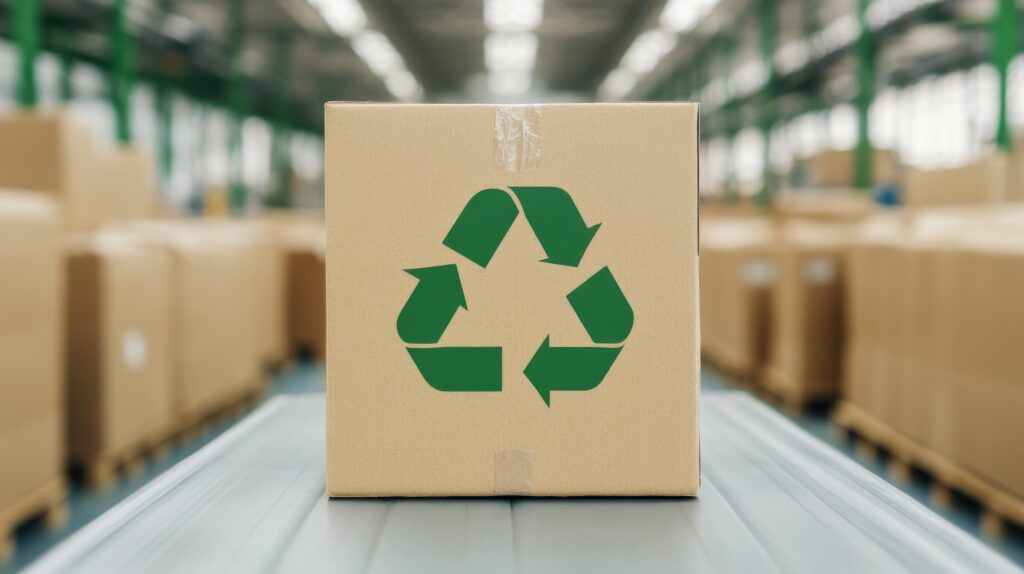The Packaging Management Decree 2014 (Besluit Beheer Verpakkingen 2014) is the Netherlands’ primary legislation governing packaging waste management. The Netherlands also implements the EU Packaging and Packaging Waste Directive (PPWD) and establishes Extended Producer Responsibility (EPR) obligations for manufacturers, importers, and distributors.
With the recent adoption of the EU Packaging and Packaging Waste Regulation (PPWR) (EU) 2025/40), businesses should expect adjustments as the Netherlands aligns its national laws with new EU-wide sustainability requirements.
This guide outlines who is impacted, key compliance requirements, reporting obligations, and potential penalties under the Netherlands’ Packaging Management Decree, along with insights on upcoming regulatory changes.
Who Is Impacted by the Packaging Management Decree?
The Netherlands’ Packaging Management Decree applies to a broad range of businesses involved in packaging production, distribution, and importation. Companies that manufacture, import, or sell packaged goods in the Netherlands must comply with EPR obligations to ensure proper waste management and recycling.
Manufacturers producing packaging materials or supplying packaged products are responsible for ensuring compliance with national and EU regulations. Importers bringing packaged goods into the Dutch market must also meet these obligations—even if they do not have a physical presence in the Netherlands. In such cases, businesses must appoint a third-party representative to fulfill compliance responsibilities. Similarly, distributors and retailers, including e-commerce businesses, must ensure that packaging associated with their products meets regulatory standards.
The decree covers both commercial and industrial packaging made from glass, plastic, paper/cardboard, metals, wood, and composite materials and is meant to ensure sustainable waste management and recycling practices. These regulations hold all businesses in the supply chain accountable, helping to reduce excess waste and promote a circular economy.
Key Requirements for Businesses
Businesses must comply with EPR obligations, which include registration, reporting, and financial contributions toward packaging waste management.
- Register with Verpact or Appoint a Third-Party Representative
Companies that place 50,000 kilograms or more of packaging on the Dutch market annually must register with Verpact, the designated packaging compliance scheme in the Netherlands. Importers without a legal entity in the country must appoint a third-party representative to fulfill their obligations under the Packaging Management Decree.
- Meet EPR Obligations Through Verpact Membership
Membership in Verpact ensures businesses comply with packaging recovery and recycling targets. Members must pay eco-contributions based on packaging type and quantity to support waste collection, sorting, and recycling programs. The current values of these rates is available on the Verpact website.
- Report Packaging Volumes
Companies must submit annual reports detailing the volume and types of packaging they introduce into the market. If exact weight data is unavailable, Verpact provides estimation tools and standardized coefficients to simplify reporting.
Risks of Non-Compliance
Failure to comply with the Netherlands’ Packaging Management Decree can result in financial penalties, sales restrictions, and legal consequences. Businesses that fail to meet registration, reporting, or EPR obligations may face fines per violation, with penalties determined by the severity of non-compliance.
Non-compliant companies may also be prohibited from selling products in the Dutch market until they meet regulatory requirements. Additionally, regulatory bodies, consumer protection agencies, or competitors may initiate legal action against businesses that do not follow packaging laws. Authorities may also increase scrutiny through audits and enforcement measures for companies that fail to register or report packaging data.
Ensuring compliance is critical to avoiding penalties, maintaining market access, and supporting the Netherlands’ sustainability goals.
Looking Ahead: Upcoming Changes Under the EU PPWR
In December of 2024, the European Union adopted the Packaging and Packaging Waste Regulation (PPWR) (EU) 2025/40, introducing harmonized sustainability requirements for all packaging placed on the EU market. The regulation entered into force on February 11, 2025, with its provisions becoming applicable beginning August 12, 2026.
PPWR will apply directly to all EU Member States, including the Netherlands, without requiring national transposition. However, the Dutch government is expected to adjust existing laws, such as the Packaging Management Decree 2014, to align with PPWR’s stricter sustainability measures. This follows a historical pattern, as the Netherlands previously updated its national regulations to comply with the 1994 Packaging and Packaging Waste Directive, making it likely they will do so again under the new EU framework.
Key expected changes include:
- New recyclability standards for all packaging
- Mandatory reuse and refill targets for specific packaging types
- Harmonized labeling requirements to improve consumer recycling awareness
Businesses operating in the Netherlands should monitor updates from Verpact and Dutch regulatory authorities to stay ahead of upcoming obligations.
Need Help?
Navigating the Netherlands’ evolving packaging regulations can be complex. At Tetra Tech, we help businesses understand EPR obligations, streamline reporting, and develop compliance strategies to ensure continued market access. Contact our team today at [email protected] to simplify compliance and stay ahead of regulatory changes.
This is the fifth installment in our blog series on packaging regulations across key EU member states. For detailed insights into other countries’ requirements, explore the articles linked below.
Part 1 (Germany): German Packaging Act (VerpackG): A 2025 Guide to International Packaging Laws (Part 1)
Part 2 (France): France Packaging Regulations: A 2025 Guide to International Packaging Laws (Part 2)
Part 3 (Italy): Italy’s Packaging Regulations: A 2025 Guide to International Packaging Laws (Part 3)
Part 4 (Ireland): Ireland’s Packaging Regulations: A 2025 Guide to International Packaging Laws (Part 4)
Part 5 (The Netherlands): The Netherlands Packaging Management Decree: A 2025 Guide to International Packaging Laws (Part 5)
Part 6 (Belgium): Belgian Packaging Regulations: A 2025 Guide to International Packaging Laws (Part 6)





